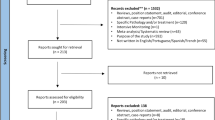Summary
Despite the fundamental importance of reporting of suspected adverse drug reactions, less than 10 per cent of serious adverse drug reactions are reported. To further enhance our understanding of doctors’ knowledge and attitudes to the current Adverse Drug Reaction (ADR) reporting scheme we surveyed 158 doctors, including some 106 general practitioners and 23 hospital-based doctors. The response rate was 39.5 per cent. The majority had experience of reporting an ADR. Seriousness of the ADR appears to be the most important reason for reporting. Uncertainty that the adverse drug reaction was definitely caused by the medicine, that the adverse drug reaction was too trivial to report or that it was too well known a reaction to report are common reasons for not reporting. Of concern 84 per cent of doctors are unaware of the criteria of the National Drug Regulatory Agency indicating the need for additional education and information in this regard.
We also found considerable disagreements in doctors’ understanding of the meaning of common, occasional, rare, or very rare as applied to ADRs.
Similar content being viewed by others
References
Pirmohamed, M., Breckenridge, A., Kitteringham, N., Park, B. Fortnightly review. Adverse drug reactions. BMJ 1998; 316: 1295–1298.
Irish Medicines Board: Annual Report and Accounts 1997.
General Medical Services (payments) Board Annual Report 1997.
Feely, J., Moriarty, S., O’Connor, P. Stimulating reporting of adverse drug reactions by using a fee. BMJ 1990; 300: 22–3.
Belton, K. J., Lewis, S. C., Payne, S., Rawlins, M. D., Wood, S. M. Attitudinal survey of adverse drug reaction reporting by medical practitioners in the United Kingdom. British Journal of Clinical Pharmacology 1995; 39: 223–226.
McGettigan, P., Feely, J. Adverse Drug Reaction Reporting: Opinions and Attitudes of Medical Practitioners in Ireland. Pharmacoepidemiology and Drug Safety 1995; 4: 355–358.
Reporting adverse reactions Irish Medicines Board Drug Safety Newsletter — issue No. 3. p4. Jan. 1997.
Irish Medicines Board. Drug Safety Newsletter. October 1997: 5th edition.
Wood, A., Stein, C., Woosley, R. Making Medicines Safer — The Need for an independent Drug Safety Board. New England Journal of Medicine, 1998: 339.25; 1851–53.
McGettigan, P., Golden, J., Conroy, R., Arthur, N., Feely, J. Reporting of adverse drug reactions by hospital doctors and the response to intervention. British Journal of Clinical Pharmacology 1997; 44: 98–100.
Hall, M., McCormack, P., Arthurs, N., Feely, J. The spontaneous reporting of adverse drug reactions by nurses. British Journal of Clinical Pharmacology 1995; 40: 173–175.
Author information
Authors and Affiliations
Rights and permissions
About this article
Cite this article
Williams, D., Feely, J. Underreporting of Adverse Drug Reactions: Attitudes of Irish doctors. Ir. J. Med. Sc. 168, 257–261 (1999). https://doi.org/10.1007/BF02944353
Issue Date:
DOI: https://doi.org/10.1007/BF02944353



